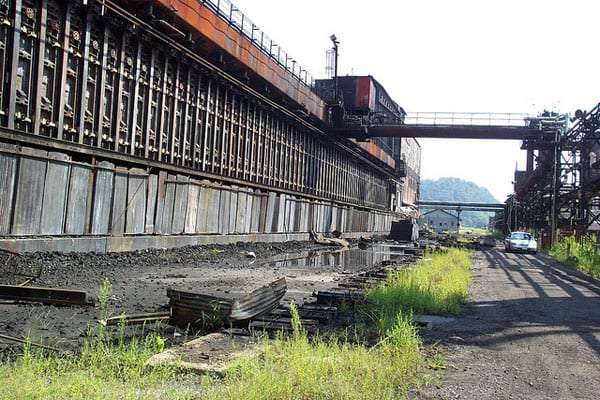
November 18, 2018; Buffalo News
Tonawanda Coke is primarily known in upstate New York for its pollution, but now its CEO, Paul A. Saffrin, has drawn some attention for his trusteeship of his family’s foundation, set up by his grandfather, J.D. Crane, who founded the business. The scrutiny drawn to the foundation has surfaced the fact that since Crane died in 2014, Saffrin has been paid more than $40,000 a year as a trustee for working two hours a week, which came out to more than $400 an hour in 2016. He also changed the foundation’s name from “the Crane Family Foundation” to “the Paul A. Saffrin Foundation.”
Tonawanda Coke just went bankrupt, leaving the cleanup associated with its environmental impact for others to do, but the family foundation lives on. The foundation is relatively small, with assets of $8 million, and it made grants to only three organizations over 2015 and 2016, so one presumes there’s little heavy lifting that would have justified such a payout.
Coke is a kind of fuel made from heating and processing coal, and Tonawanda Coke’s manufacturing process produces toxic smoke which, according to the CDC, can put people at greater risk of developing leukemia. In 2013, Tonawanda Coke was found guilty of violating the Clean Air Act between 2005 and 2009. The judge called the company’s conduct “singularly inexcusable” and ordered $25 million in fines and community-service payments. When it announced its impending closure, US Rep. Brian Higgins (D-Buffalo) called it good news. “After years of bad actions by Tonawanda Coke, the community can finally breathe easier,” Higgins said, “Again and again Tonawanda Coke proved themselves to be a bad corporate citizen, endangering the lives and health of its employees and neighbors.”
Sign up for our free newsletters
Subscribe to NPQ's newsletters to have our top stories delivered directly to your inbox.
By signing up, you agree to our privacy policy and terms of use, and to receive messages from NPQ and our partners.
But Harish Patel, an environmental engineer with the federal Environmental Protection Agency, says that the shutdown plan itself poses real potential danger to the community. Buffalo News reports that Patel observed six inches of oily, questionable liquid in a “moat” in one of the byproduct work areas during a June 2018 investigation. According to court papers, Patel “asked what [Tonawanda Coke] planned to do with that liquid, and they indicated that they were going to leave it as it was when they left the facility, because they don’t have the money to pump it out.”
“If the moat overflows during a rain event,” Patel said, “it could overflow and contaminated water may eventually go into the Niagara River.”
Some people believe that the foundation’s assets should be attached somehow to pay for repairing the damage. “We think the Saffrin Foundation should be held accountable,” said Rebecca Newberry, executive director of the Clean Air Coalition of Western New York. Otherwise, she says, the taxpayers will be twice abused. Jackie James-Creedon of the Citizen Science Community Resources organization previously critiqued the Saffrin Foundation when it announced a $1 million grant to build a new Explore and More Children’s Museum and another grant of $1 million to Daemen College, where Saffrin is a trustee. In her 2016 statement, Creedon said, “Wouldn’t it be logical to donate this money to the people that have been harmed by the company’s pollution first?”
We might suggest this story to American Greed. There are three trustees at the Saffrin Foundation, but only two of them take any payment, and only Saffrin takes a five-figure amount.—Ruth McCambridge













